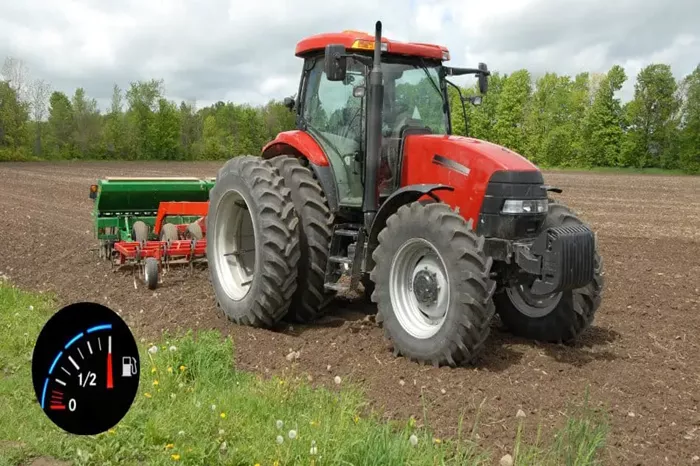Tractors are integral to modern agriculture, enabling farmers to handle a wide range of tasks efficiently. The performance and longevity of these machines depend significantly on the type of diesel fuel used. Choosing the right diesel fuel is crucial for optimal tractor operation and maintenance. This article delves into the different types of diesel fuel available, their characteristics, and which is best suited for tractor use.
Understanding Diesel Fuel Types
Diesel fuel is categorized based on its chemical composition, intended use, and environmental impact. Here’s an overview of the primary types of diesel fuel:
1. Regular Diesel (Diesel #2)
Regular diesel, also known as Diesel #2, is the most commonly used type of diesel fuel in tractors. It has a medium cetane rating and is suitable for most diesel engines, including those in agricultural tractors.
Characteristics: Diesel #2 is known for its balanced performance, providing good engine efficiency and fuel economy. It is widely available and generally less expensive than premium diesel fuels.
Advantages: It offers reliable performance in a wide range of temperatures and conditions, making it ideal for regular farming operations.
Disadvantages: In very cold climates, Diesel #2 can gel or cloud, which may affect engine performance.
2. Premium Diesel
Premium diesel fuels are specially formulated to provide enhanced performance over standard Diesel #2. These fuels typically contain additives that improve engine cleanliness and reduce emissions.
Characteristics: Premium diesel usually has a higher cetane rating than regular diesel, which helps in smoother engine starts and better combustion efficiency.
Advantages: It can lead to improved fuel economy, reduced engine wear, and lower emissions. It is beneficial for high-performance or heavily used tractors.
Disadvantages: Premium diesel is more expensive than regular diesel, which can increase operating costs.
3. Winter Blend Diesel
Winter blend diesel is a type of diesel fuel specially formulated to perform well in cold weather. It is a mixture of regular diesel and additives designed to prevent fuel from gelling in low temperatures.
Characteristics: Winter blend diesel has a lower pour point, making it less likely to freeze or gel in cold conditions.
Advantages: It ensures reliable engine operation during winter months and prevents fuel line freeze-ups.
Disadvantages: Winter blend diesel can be more costly than regular diesel and may offer slightly reduced fuel economy.
4. Bio-Diesel
Bio-diesel is made from renewable sources, such as vegetable oils or animal fats. It is an environmentally friendly alternative to conventional diesel fuels.
Characteristics: Bio-diesel can be used in pure form (B100) or blended with regular diesel (e.g., B20, which is 20% bio-diesel and 80% regular diesel).
Advantages: It reduces greenhouse gas emissions and is biodegradable. It also helps in reducing reliance on fossil fuels.
Disadvantages: Bio-diesel can affect engine performance if not used correctly. It may also cause compatibility issues with older tractors.
See also: Top 10 Costco Locations That Sell Diesel Fuel
Factors to Consider When Choosing Diesel Fuel for Tractors
Selecting the right type of diesel fuel involves considering several factors:
1. Climate and Weather Conditions
The local climate plays a significant role in fuel selection. For colder climates, using winter blend diesel or adding anti-gel additives to regular diesel can prevent fuel-related issues. In warmer climates, regular Diesel #2 or premium diesel may be more suitable.
2. Engine Requirements
Consult your tractor’s owner manual to determine the recommended type of diesel fuel. Some modern engines are designed to work optimally with premium diesel or specific blends of bio-diesel.
3. Fuel Efficiency and Cost
While premium diesel and bio-diesel offer improved performance and environmental benefits, they are also more expensive. Evaluate the cost-benefit ratio based on your tractor’s usage and operational needs.
4. Environmental Considerations
Using bio-diesel or premium diesel can help in reducing the environmental impact of your operations. If sustainability is a priority, consider incorporating these fuels into your farming practices.
5. Storage and Handling
Ensure proper storage and handling of diesel fuel to maintain its quality. Use clean, sealed containers and avoid contamination with water or other substances. This is crucial for all types of diesel fuel but especially important for bio-diesel.
Maintenance and Fuel Management Tips
Regardless of the diesel fuel type you choose, proper maintenance and fuel management are essential for the longevity of your tractor:
1. Regular Maintenance
Follow the maintenance schedule provided by the tractor manufacturer. Regularly check and replace fuel filters to prevent clogging and ensure smooth engine performance.
2. Fuel Additives
Consider using fuel additives to improve performance and protect the engine. Additives can help in cleaning injectors, preventing fuel gelling, and reducing emissions.
3. Monitor Fuel Quality
Regularly inspect the quality of the diesel fuel being used. Look for signs of water contamination or fuel degradation, which can affect engine performance.
4. Safe Storage Practices
Store diesel fuel in a cool, dry place away from direct sunlight and sources of ignition. Use fuel stabilizers if storing fuel for extended periods to prevent degradation.
Conclusion
Choosing the right type of diesel fuel for your tractor is essential for maintaining optimal performance and ensuring the longevity of your equipment. Regular Diesel #2 is suitable for most applications, but premium diesel, winter blends, and bio-diesel offer specific benefits based on your needs. Consider factors such as climate, engine requirements, and environmental impact when making your decision. Proper maintenance and fuel management will also contribute to the efficient operation of your tractor.
By understanding the characteristics of different diesel fuels and applying this knowledge to your tractor operations, you can enhance performance, reduce costs, and support sustainable practices in agriculture.
Related topic:
Which Diesel Fuel Filter is Best? [Revealed]

